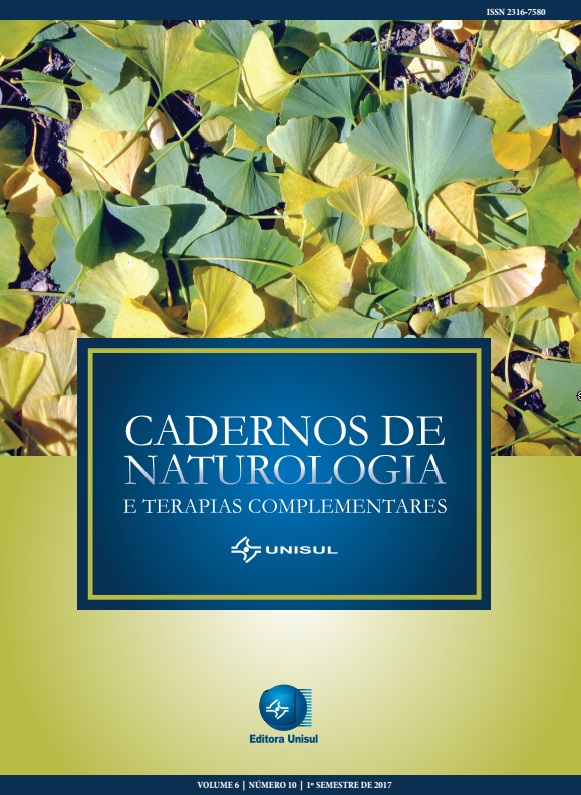The use of theories on constitutional standards of tradicionals medicineschinese and ayurvedic on Naturology
DOI:
https://doi.org/10.19177/cntc.v6e10201765-78Keywords:
Naturology, Constitutional Standards, Chinese Medicine, Ayurvedic MedicineAbstract
The Naturology seeks to add the fundamentals of traditional Chinese medicines and Ayurvedic, establishing a conciliatory look these views. These medical rationales constitutions of medicines are considered as present diagnostic and treatment systems from the observation of the constitutional standard of each individual, in¬cluding their natural characteristics. The objective of this research was to understand the perception of natu-rologist on the use of theories on Constitutional Standards of Chinese traditional medicine and ayurvedic stra¬tegy as a facilitator to lead the naturologic therapy. This is a qualitative, exploratory and descriptive research. Data were collected from a semi-structured interview, with the participation of eight naturologist formed at the University of Southern Santa Catarina, who are working with clinical practice and using these theories. The application of the research took place after approval by the Research Ethics Committee of the opinion UNISUL number 53403815.8.0000.5369. It was observed as a result of the research, that the theories of constitutional standards are an enabling tool to conduct therapy, which provides numerous benefits to naturologist when interacting and own interagency relationship. Therefore, they consider extremely important the knowledge of traditional medicines for professional training, as well as the use of the therapeutic practice.Downloads
Published
2017-10-19
Issue
Section
Original Articles


